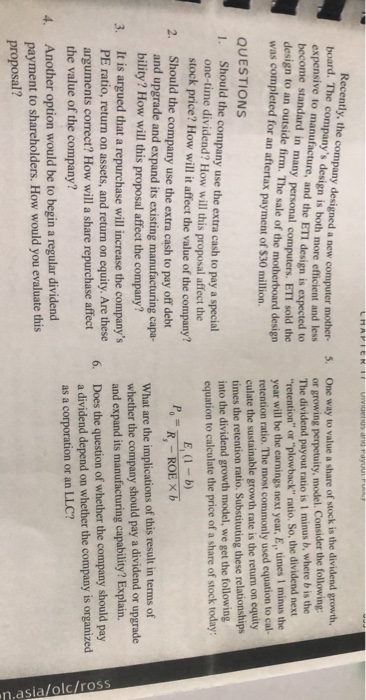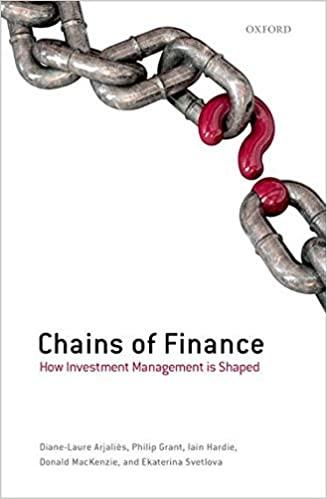Electronic Timing, Inc. Electronic Timing, Inc. (ETI), manufactures integrated circuits to capitalize on the complex mixed-signal design technology and has recently entered the market for frequency timing gen- erators, or silicon timing devices, which provide the timing signals or "clocks" necessary to synchronize electronic sys- tems. Its clock products originally were used in PC video graphics applications, but the market subsequently expanded to include motherboards, PC peripheral devices, and other digita consumer electronics, such as digital television boxes and game consoles. ETI also designs and markets custom application-specific integrated circuits (ASICS) for industrial customers. The ASIC's design combines analog and digital.com mixed-signal, technology. LHAPIER VIS Payu ned a new computer mother. 5. Recently, the company designed a new computer board. The company's design is both more efficient and less expensive to manufacture, and the ETI design is expected to become standard in many personal computers. ETI sold the design to an outside firm. The sale of the motherboard design was completed for an aftertax payment of $30 million One way to value a share of stock is the dividend growth, or growing perpetuity, model. Consider the following: The dividend payout ratio is 1 minus b, where b is the "retention" or "plowback" ratio. So, the dividend next year will be the earnings next year, Etimes 1 minus the retention ratio. The most commonly used equation to cal- culate the sustainable growth rate is the return on equity times the retention ratio. Substituting these relationships into the dividend growth model, we get the following equation to calculate the price of a share of stock today: E. (1-b) PR - ROE Xb What are the implications of this result in terms of whether the company should pay a dividend or upgrade and expand its manufacturing capability? Explain. Does the question of whether the company should pay a dividend depend on whether the company is organized as a corporation or an LLC? QUESTIONS 1. Should the company use the extra cash to pay a special one-time dividend? How will this proposal affect the stock price? How will it affect the value of the company? Should the company use the extra cash to pay off debt and upgrade and expand its existing manufacturing capa- bility? How will this proposal affect the company? 3. It is argued that a repurchase will increase the company's PE ratio, return on assets, and return on equity. Are these arguments correct? How will a share repurchase affect the value of the company? Another option would be to begin a regular dividend payment to shareholders. How would you evaluate this 2. 6. n.asia/olc/ross proposal








